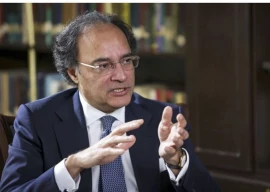
They are educated, tech-savvy and extremely vocal about their opinions. But they are not the familiar faces that beam through your living room television screens, nor those whose bylines are printed on the news stories that you read in your daily newspaper. Meet the new actors on the global media landscape. Motivated, confident and well-aware, this group is ready to take on the world – armed with their laptops, iPhones and Blackberrys.
With the advent of web 2.0 technologies and the recent social media boom, the media realm is witnessing a drastic transformation. Gone are the days when information used to flow in a one-way stream and the audiences were only passive recipients. Today, the audience is taking a more active role – not only in influencing the kind of content that is aired and published, but in producing that content themselves.
User generated content is driving change in the media. Variously dubbed citizen journalism, participatory journalism, grassroots journalism and new media, this recent trend refers to citizens playing a more active role in collecting, reporting, disseminating and analysing information.
While this change is being viewed by some media owners and professionals with suspicion, others are wholeheartedly embracing the phenomenon and integrating it within traditional news media. Some mainstream media outlets have opened their doors to the concept by introducing ‘citizen journalism’ segments like CNN’s iReport and DawnNews’ Citizen Journalist. Others are following a policy of incorporating Twitter feeds and blog opinions into daily news reporting.
The trend has gained greater momentum in the face of curbs on the traditional media. Blogs and Twitter have largely been able to evade attempts at censorship and garner international attention as the example of Iran’s election time protests being reported through Twitter and videos posted on blogs and YouTube has so aptly demonstrated.
However, concerns have been raised about the credibility of what some have called ‘amateur reporting’ and about how much such content can be trusted. We spoke to bloggers and traditional journalists to get their views on this growing trend.
Traditional journalists
Najam Sethi (Editor-in-chief, The Friday Times):
Citizen journalism via Twitter, Facebook and blogs is going to be an integral element of future media. Twitter today is being used to break news. This can be faster than any wire service or TV channel. I am finally on Twitter and I will start using it for media purposes. I'm going to have a Blog too. I do not think there are training issues in citizen journalism. For quick two sentence eye-witness breaking news, you do not have to be trained. You can provide the lead, a tip-off, and the mainstream media can pick up the thread from there. One can also challenge false or prejudiced accounts of incidents on Twitter and Facebook. Right now, Twitter/blogs etc are alternative media, but in the future, they will be part of mainstream media.
Rehana Hakim (Editor-in-chief, Newsline magazine):
I can’t say whether this new trend of citizen journalism through blogs, Twitter etc is really journalism. So far, it has been more about advocacy and activism. It has got people thinking about issues, formulating opinions and that is positive. It is bringing people together like in the case of the floods and the Sialkot lynching incident. It does sensitise people and mobilise them as well. So, it is participatory journalism.
But there are dangers involved. For example, when these bloggers are reporting, I don’t know whether it is in-depth and whether there is proper fact-checking involved. Fabrication is another danger. I believe some of these bloggers have gained a wide fan following. One hopes that they will use their star status to lobby for the right causes and not be propagandists.
Bloggers
Dr Awab Alvi (Prominent blogger known as Teeth Maestro):
For me, blogging is more about raising my voice. I think the difference between traditional journalists and bloggers is that bloggers don’t research their topics as much as traditional journalists do. We don’t really follow the ethics traditional media have more responsibility to follow. Traditional media have more responsibility to research their topic and speak to different people. A blog is one person’s opinion. It doesn’t fall into the old classifications of journalism, but with the technology boom, it is felt that this new form of journalism should be taken seriously. It should be understood.
Syed Ali Raza Abidi (Popular blogger and active tweeter):
Sometimes, tweets by individuals can be more relevant than reports from the mainstream media, because many users with similar reports can share additional information 'live' as it is learned, which leads to opinions being developed or immediately countered. If citizen journalism were not taken seriously, Julian Assange would not have been under death threats today. Yes, the future is very different than where we were heading before 28/11/10 (Cablegate). Responsible bloggers with a large active following have the power of developing perceptions and opinions, better than and quicker than the mainstream media, because citizen journalism is faster.
Web-savvy journalists
Nadir Hassan (Karachi based journalist and popular tweeter):
Twitter is a great resource for finding out breaking news since people with far more intestinal fortitude than me will post about what they see on news channels. Unlike, say, being a doctor, journalism doesn't require any qualifications. As such, someone who is at the scene of a blast and provides first-hand information of what is happening is as much of a journalist as a reporter who works for a newspaper. Journalists like to think they are part of an exclusive guild but anyone who provides information others want or need is doing the job without getting the title. Ninety per cent of the job of a journalist is to read, listen and write what others say or do. If you cut out the middleman, why shouldn't primary sources be called journalists? It's just a matter of semantics.
Huma Imtiaz (Karachi based journalist and popular tweeter):
The social media has helped me in my job to some extent, since one uses it to interact with people from different professions and one can use it as a news source (i.e. look at Twitter feeds of various channels, wire agencies and print outlets) if they’re on the move. With regards to reaching a wider audience, definitely, Twitter has made a difference, especially since most articles are instantly put up on the internet. Sharing a link on Twitter means that people who follow you get to read it, and if they choose to pass it along, that allows your article/report to be read by a wider audience.
There are terms such as “citizen journalists”, “bloggers” and so on; everyone’s not grouped under the term “journalist”. Hearing, for example, a bomb blast echo in Karachi and posting that on Twitter does not make one a journalist, and I don’t think those who do post such news items consider themselves journalists either.
Published in The Express Tribune, December 19th, 2010.


































































COMMENTS
Comments are moderated and generally will be posted if they are on-topic and not abusive.
For more information, please see our Comments FAQ